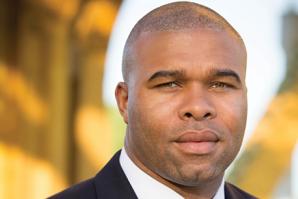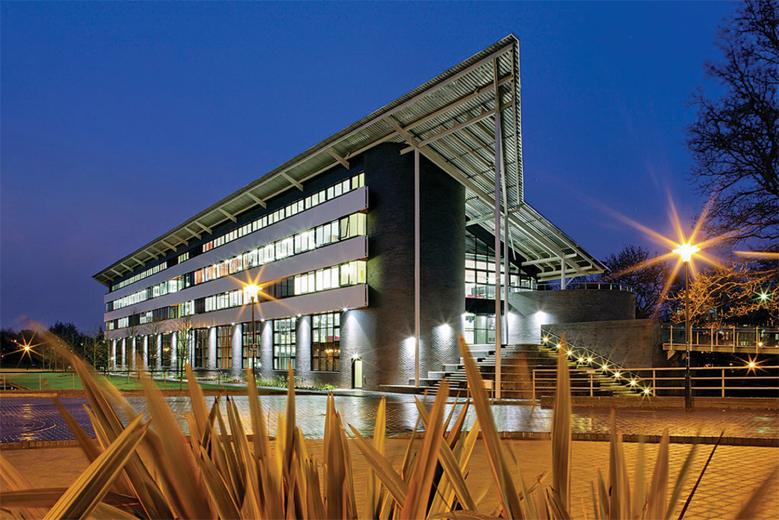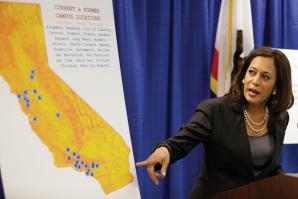A 12-year mission to bring higher education to Placer County, spearheaded by local land baron Angelo Tsakopoulos, has gone global.
The potential import of a U.K. university could raise Placer County to the forefront of an international movement in education — one that has traditionally been characterized by the U.S. exporting its own collegiate institutions abroad.
Local officials have been courting the University of Warwick in Coventry, England, with a 1,157-acre land donation for a campus near Roseville. After two failed attempts to bring a university to the site, first with the Bay Area’s St. Mary’s College and later with Philadelphia’s Drexel University (which still runs a satellite campus from downtown Sacramento), the move to woo Warwick represents a new strategy in education’s globalization.
“I think the folks in Placer County are thinking creatively,” says Jason Lane, an associate professor of international education at the University at Albany-SUNY who has tracked cross-border higher education for the past five years. “Declining state revenue going to schools translates to a greater demand for higher education. The domestic system is not able to provide a higher institution, so they are looking overseas.”
In November, a delegation of Placer County officials and representatives from nonprofit W.M. Corp., which currently holds the land just west of Roseville, traveled to Coventry to meet with Warwick officials and tour the campus. The university has already expanded internationally through a partnership with Australia’s Monash University and the creation of joint doctoral programs through the Warwick-Monash Alliance. Warwick’s next venture overseas could bring the institution to Northern California.
“We have developed close working relationships with our colleagues in Placer County and Roseville, which are places of enormous achievement and enormous potential,” says Warwick’s Vice Chancellor Nigel Thrift.
Following November’s trip, W.M. Corp. spokesperson Michael Faust said the nonprofit will be drafting a memorandum of understanding to serve as the basis for an official agreement between the two institutions for a land transfer. While 600 acres would go to the campus itself, which could potentially serve up to 6,000 students, the remaining 557 acres would be sold for development to fund an endowment.
Going Global
The United States is the leading exporter of higher education. The products range from its 82 branch campuses — fully functioning campuses that adhere to the same admission and degree requirements as their flagship institution — to other forms of foreign educational outposts that include university partnerships and collaborative research centers around the globe. Unlike Warwick’s expansion, most of these campuses are being developed in areas that are culturally far-removed from their home bases.
“It’s part of a strategy of universities to ensure that they are staying ahead of the market,” Lane says. “In countries like the U.S. or U.K., where you see an aging population base, some campuses are looking globally to see where the market is expanding rapidly, usually Asia or the Middle East.”
According to Angelo Tsakopoulos’s son, donor spokesman and AKT Development CEO Kyriakos Tsakopoulos, the new campus would have the freedom to develop an identity and curriculum unique to Placer County. He says Warwick will fund half the costs for a market study assessing local demand for particular degree programs in the region and statewide, the findings of which would then help guide the institution’s educational focus. According to Lane, the study is a wise move on Warwick’s part.
“U.S. institutions are already considered the gold standard,” he says. “To set up shop, you need to be pretty strategic in terms of where you set up and what you are trying to attract.”
Lane cited only a handful of foreign universities with a U.S. presence, the result of an already-saturated U.S. market. Placer County, however, could still prove to be a good fit for Warwick.
“There is no other regionally accredited university there,” he says, “so this could be a successful area to move into.”
A match made in heaven?
The Central Valley and Placer County may have an available niche for Warwick to occupy. The Next Economy development strategy put forth by local economic development nonprofits in March of 2013 emphasizes the importance of university/industry collaboration via research centers, incubator and accelerator programs that would allow educational research to fuel entrepreneurship in emerging technologies.
“We’ve really utilized some of the regional thought to inform our process going forward,” says Faust. “What Warwick is doing around tech transfer and commercialization fits nicely with what Next Economy talks about as far as what a university should do in this region.”
The University of Warwick, established in 1965, is already consistently ranked as one of the U.K.’s top 10 universities and is known for its emphasis on science, technology and engineering. It oversees four University of Warwick science parks that house a combined 150 companies and 2,000 employees. Residents benefit from the university’s research; grants to small and medium-sized businesses for research and development in science, engineering and tech; funding through the Minerva Business Angel Network; and coaching in marketing and business development.
Placer County Board Supervisor Kirk Uhler, who traveled to Coventry as part of the delegation in November, says Warwick’s success in its home country is proof of the potential impact it could have on the Central Valley. He says the university spends the equivalent of $740 million annually and supplies 5,000 jobs on its flagship campus.
“Warwick is clearly a huge economic driver for Coventry,” Uhler says, “and you have the wonderful ancillary of job creation and research development in the kind of facility they are proposing. It’s hard to predict, but we can look at what they’ve already got in place and note that it bodes well for us.”
While the local community may be eager to make its relationship with Warwick official, at the time of publication no official agreement had been made. Thrift made clear that the university would not enter into any arrangement without a thorough vetting.
“While we at Warwick are giving very serious consideration to this significant opportunity and investing time and resources to examine it,” Thrift says, “It will of course take time for Warwick’s governing bodies to consider it fully and to make decisions.”
Recommended For You

Michael Marion Moves to Drexel
We told you he was up-and-coming
On July 1, 35-year-old Michael Marion became the executive director and associate vice provost of Drexel University Sacramento. Marion replaces Dr. Sandra Kirschenmann, who will officially retire on Sept. 1.





